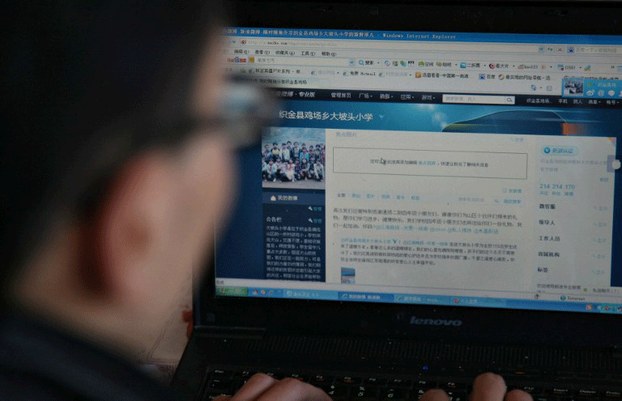




Authorities in China's southwestern Yunnan province have charged detained businessman and well-known microblogger Dong Rubin with flouting public order and committing business-related offenses amid an ongoing campaign against online "rumors," his lawyer said on Thursday.
Dong, a vocal opponent of plans to build a petrochemical plant near the provincial capital Kunming, which sparked mass protests on the city's streets earlier this year, has been formally arrested and charged with "picking quarrels" and "running an illegal business," his lawyer Xiao Dongzhi said.
The arrest formalizes the charges against Dong, a businessman from Kunming, and paves the way for a trial.
But Xiao said the authorities had refused to let him meet with Dong for more than a month, he added.
"I have met with him twice," Xiao said. "The second time was on Sept. 13, but every time I have been to see him since then, the police have told me in advance that there is no time available for a meeting."
"So I haven't been able to visit him, and I don't know how he is doing."
Dong, who has some 45,000 followers on the popular Sina Weibo platform, where he is known by his nickname "bianmin," appears to have predicted the general direction his case would take.
Dong wrote on his Twitter-like microblog account in August that strangers had raided his office, taking away three computers, without providing any legal documentation.
"What crime will they charge me with? Using prostitutes, gambling, using or selling drugs, tax evasion, gathering a crowd to stir up trouble, fabricating rumors, or directing a criminal society online?" Dong wrote.
Shortly afterwards, he was arrested on suspicion of inflating the amount of his business' capital when he registered it.
Directive
China's highest judicial authorities issued a directive on Sept. 1 criminalizing online "rumor-mongering," in a move widely seen as targeting critical comments and negative news on the country's hugely popular social media sites.
Dong's formal arrest was prominently reported in state-run media, including state-run broadcaster China Central Television (CCTV) and the ruling Chinese Communist Party mouthpieces Xinhua news agency and the People's Daily.
Social media activist Wu Gan, known online by his nickname "The Butcher," said he believed Dong's arrest was a form of official retaliation against the blogger, whose posts were often critical of the Communist Party.
"He was previously detained for faking his accounts, and this is a very common phenomenon in China, because pretty much all companies do it, 80 percent of them could be guilty of this sort of crime," Wu said.
"After that, there was a report on CCTV saying that he had been spreading rumors online. Personally, I think they shouldn't detain someone first and then try to gather evidence against them."
He said there were problems with due process in the authorities' handling of Dong's case.
"This is probably a retaliatory [case]. I saw that some of the things he did were very critical of the police."
Two-month wait for trial
Meanwhile, lawyer Xiao said it would likely take a further two months for Dong's case to proceed to trial.
"We will decide how to argue this case when we see the indictment," he said.
Dong was held soon after prominent businessman and outspoken tweeter Wang Gongquan was detained on suspicion of "assembling a crowd to disrupt public order."
Rights activists said the move came as part of a widening crackdown on anti-corruption activists loosely known as the New Citizens' Movement, as well as Beijing's "war on rumor."
Wang had publicly called for the release of lawyer Xu Zhiyong, detained in July after helping members of the New Citizens' Movement, which has organized demonstrations since March calling on top government officials to disclose their assets.
Reported by Yang Fan for RFA's Mandarin Service. Translated and written in English by Luisetta Mudie.